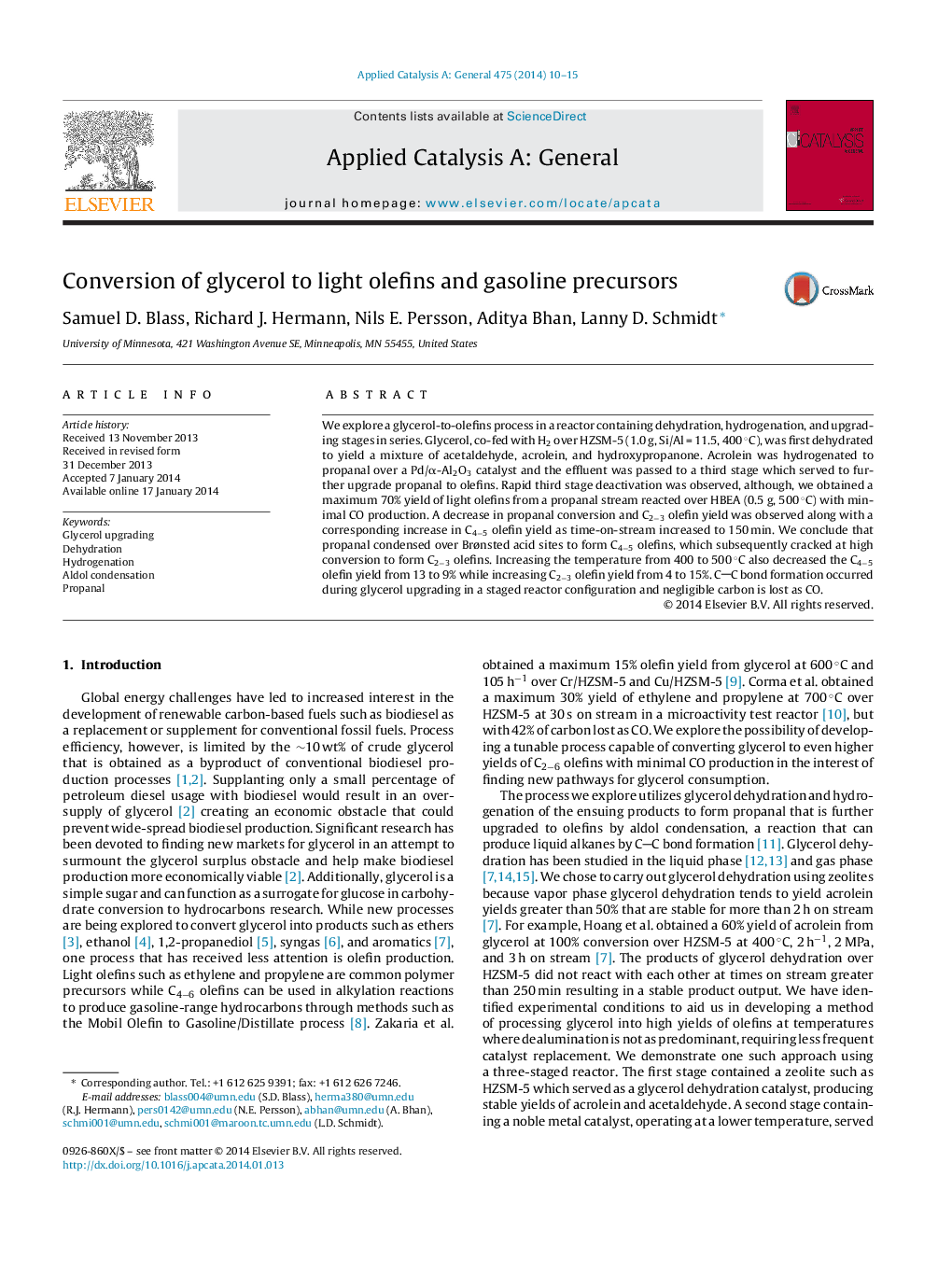| Article ID | Journal | Published Year | Pages | File Type |
|---|---|---|---|---|
| 39811 | Applied Catalysis A: General | 2014 | 6 Pages |
•Conversion of glycerol to olefins in a staged reactor with zeolite and metal stages.•High temperatures favor light olefins; low temperatures favor large olefins.•A 70% yield of ethylene and propylene obtained from propanal feed over HBEA zeolite.
We explore a glycerol-to-olefins process in a reactor containing dehydration, hydrogenation, and upgrading stages in series. Glycerol, co-fed with H2 over HZSM-5 (1.0 g, Si/Al = 11.5, 400 °C), was first dehydrated to yield a mixture of acetaldehyde, acrolein, and hydroxypropanone. Acrolein was hydrogenated to propanal over a Pd/α-Al2O3 catalyst and the effluent was passed to a third stage which served to further upgrade propanal to olefins. Rapid third stage deactivation was observed, although, we obtained a maximum 70% yield of light olefins from a propanal stream reacted over HBEA (0.5 g, 500 °C) with minimal CO production. A decrease in propanal conversion and C2−3 olefin yield was observed along with a corresponding increase in C4−5 olefin yield as time-on-stream increased to 150 min. We conclude that propanal condensed over Brønsted acid sites to form C4−5 olefins, which subsequently cracked at high conversion to form C2−3 olefins. Increasing the temperature from 400 to 500 °C also decreased the C4−5 olefin yield from 13 to 9% while increasing C2−3 olefin yield from 4 to 15%. CC bond formation occurred during glycerol upgrading in a staged reactor configuration and negligible carbon is lost as CO.
Graphical abstractFigure optionsDownload full-size imageDownload high-quality image (176 K)Download as PowerPoint slide
